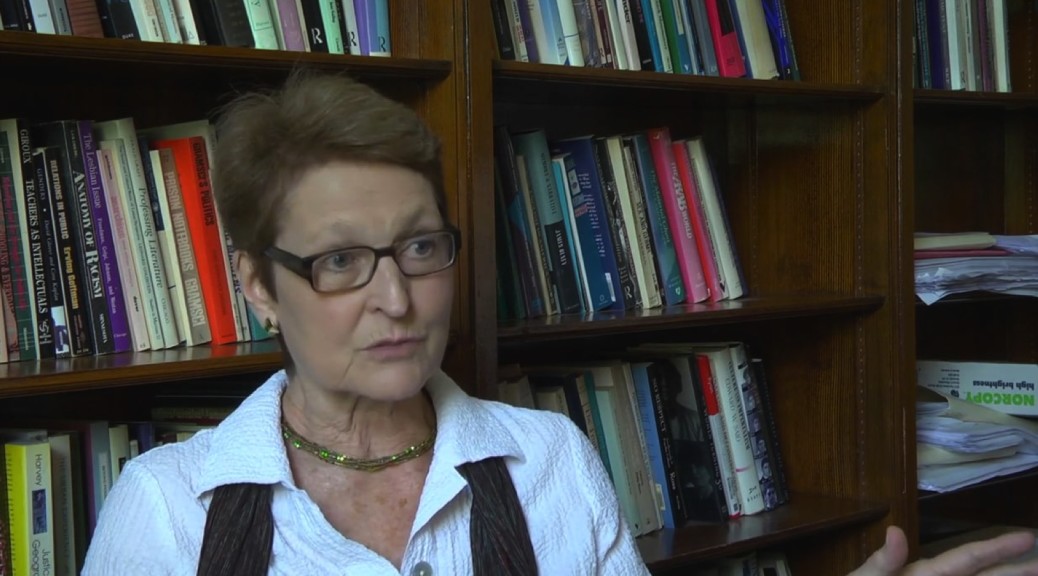JEAN HOWARD
George Delacorte Professor in the Humanities
IRWGS Director, 1997-99
Martha [Howell] and I decided we would teach a graduate course together, and one of the services we thought we would do for the university is—so many departments didn’t have any feminism at all. So we didn’t want a graduate program, but we wanted graduate courses that people could take from any department, and they’d mostly be team-taught, and we would give them training in feminist methodology. Martha and I boldly decided we’d teach the first one, and we put together what I can only describe in retrospect as the most ridiculous syllabus that I’ve ever seen, because it was so ambitious.
We were teaching Marx and Freud and Foucault, because they’re basic to feminist theory. But then we were teaching psychoanalytic feminism, and we were teaching Marxist feminism and we were teaching Black feminism and the syllabus was just overwhelming. And we had something like twenty students in there. The two of us, we were reading like crazy. Every week we’d call up and say, “Have you read the Freud yet?” “Can you do that part and I’ll do this part?” It completely exhausted us. It was an exhilarating course. So many of the students who took it—Gina Dent was in that one, Colleen Lye was in that one, and people who have gone on to be big scholars. It was completely exhilarating but it was very combative because it was the early days and everybody had their take. It wasn’t calm teaching. It was like, “Is that right?” Or, “Shouldn’t we do it this way,” or, “What about Black feminists?” It was, like, high-energy level as well as enormous intellectual challenge.
After that, we decided to striate the curriculum a bit, and we would have a more introductory course that would do certain key thinkers, and then we’d have more focused courses on special topics. Gradually, we got a graduate curriculum that had many pieces instead of trying to do the entire corpus of feminist work in one semester. But we remember that very happily, that moment.
Q: How did you come up with that title [Genealogies of Feminism]?
I thought we thought that feminism didn’t come out of nowhere, and people shouldn’t think that. Feminist thinkers were thinking with all those who had come before. We did owe a lot of prior people, not just people like Wollstonecraft, but Marx. And you couldn’t actually do feminist theory without knowing Marx, Freud, Darwin, you know, Burke—all these people had to be known. So that’s why the idea of genealogies. Feminism has a genealogy from the ‘70s and we must know that, but that feminism has a genealogy before that, in the lot of European traditions of thought, and you need to know those, too.

